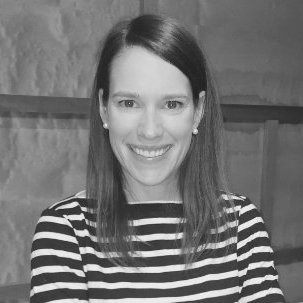Non-Traditional Candidates: Advice from Someone Who Went from Capitol Hill to a Top Five MBA Program
“Chris – I remember our first marketing group together. You kept wanting to take the lead on the quant side and couldn’t figure out how to use Excel. We all thought it was adorable.”
As it turns out, you don’t need to know Excel to get into a top MBA program. For those of you coming from non-traditional backgrounds (ie. not consulting, finance or engineering), I get what you’re going through – I was one of you. If you address a couple of key perceived weakness and craft you’re story in the right way you’ll be in a great place.
As you start your application process recognize that you have a tremendous opportunity to stand out from the crowd. Business schools need professional diversity, and that includes teachers, journalists, non-profit types, and even politicians. You will bring a richness to the classroom that another business major undergraduate who worked for two years in investment banking followed by two years in PE will not.
On the flipside, the adcoms may also assume that you have zero analytical abilities, and will be concerned with two things:
- Your ability to handle the rigorous quant aspect of the schoolwork;
- Whether you can sell your non-traditional background to employers.
On the quant side, it will significantly help if you have a quant background in college. For example, a major in Computer Science, Math, or Economics. If you don’t have that, you should invest in taking supplementary classes at a community college or online. Getting “A”s in those classes will not only show that you can handle quant, but can also reinforce how seriously you are taking your desire to get an MBA. Also, you need to perform well on the quant part of the GMAT. The typical rule of thumb here is that you need to get above the 80th percentile in quant in order to demonstrate that you’ll be able to keep up.
As you craft you story it’s also helpful to recognize that a lot of the work you’ve done probably fits into one of the following buckets that adcoms and employers will be looking for:
- Influencing others;
- Working in teams;
- Using data do make recommendations.
As an outreach coordinator for a non-profit, for example, you likely heavily rely on the relationships that you’ve built across government agencies to serve your clients. As a member of the military, you know better than anyone what it is like to work in challenging team environments. And for you political junkies, a campaign is nothing but a massive marketing challenge to identify and persuade customers, and then ultimately to get them to buy your product (ie. vote for your candidate).
Your biggest challenge is going to be building the bridge between the skills that you’ve developed in non-business environments, and how they are directly applicable to business. While doing this, you need to translate your industry jargon and explain your story in a way that a member of the adcom who’s used to “traditional” candidates can understand and grasp.
With a differentiated background, explained in a way that “makes sense” to any reader (because you never know who will be reading your application and what his or her background is), we’ve seen “non-traditional” candidates like you get into the top programs. Again, you have a real opportunity to stand out – make the most of it!
Not sure where to start? As always, we’re happy to help! Contact us: vantagepoint@vantagepointadmissions.com
After embarking on my own MBA journey, I co-founded Vantage Point MBA Admissions Consulting to help aspiring business school students get accepted to the top MBA programs in the U.S. and Europe. As President, I currently lead a team of over 25 superstar consultants to give our clients an unmatched experience, with a focus on white glove, personalized collaboration and mentorship.



